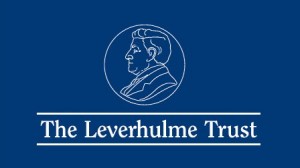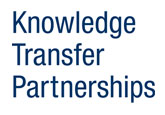 UKIERI (UK-India Education & Research Initiative) is now accepting proposals for the following strand activities:
UKIERI (UK-India Education & Research Initiative) is now accepting proposals for the following strand activities:
| Strand 2: Innovation Partnerships |
| a) UKIERI Thematic Partnerships: The sub-strand will strengthen engagement and encourage future potential collaborations between the Indian and UK higher education institutions by facilitating collaborations along with promoting and assisting registered PhD students and post-docs in India and the UK to undertake short-term visits to work on research projects. All Indian HEIs which are recognised under the Section 2(f) and 12 B of the UGC Act) can apply.Click here to download the Application form, Guidelines, Financial Sheet and Work Plan. Deadline: 15 March 2012 |
| b) DST-UKIERI Thematic Partnerships: |
The sub-strand will strengthen engagement and encourage future potential collaborations between the Indian and UK higher education institutions by facilitating collaborations along with promoting and assisting registered PhD students and post-docs in India and the UK to undertake short-term visits to work on research projects. The partnerships will be for Science & Technology projects jointly funded by Department of Science and Technology, Government of India and UKIERI under the 5 key subject areas of:
Click here to download the Application Form, Guidelines, Financial Sheet and Work Plan. |
|
|
| The sub-strand aims to support the development of mutually beneficial partnerships between higher education institutions in the UK, US and India. The funds will support the strengthening of PhD students and post-docs in all three countries in developing international team work, problem solving and innovation in research and increasing mobility of PhD students and post-docs between India, the UK and the US.Click here to download the Application Form, Guidelines and Financial Sheet.
Deadline: 13 April 2012 |
| Strand 4: Enhancing Mobility |
| a) UKIERI India UK Staff Exchange Programme |
| The programme will promote staff exchanges between Higher Education Institutions /Schools/Further Education institutions across India and the UK. The exchanges are valid for up to 4 weeks and should aim to share and deliver best practices on curriculum and pedagogy and learn from each others systems.Click here to download the Application Form and Guidelines.
Deadline: 15 March 2012 |
| b) UKIERI India UK Study Missions |
| This sub strand activity will enhance mobility of students in the two countries through collaborations between UK and Indian Higher Education/Further Education institutions. Joint partnerships will work towards developing, facilitating and managing study tours for students at undergraduate and post graduate level.Click here to download the Application Form, Guidelines, Financial Sheet and Work Plan.
Deadline: 15 March 2012 |
| c) Study India Programme |
| The sub-strand aims to foster mobility of UK students to India to encourage them to undertake further study, work placements or pursue other opportunities in India. Through these student mobility programmes students would gain experience and a greater understanding of culture, education and economy of both countries. The strand also aims to strengthen cultural links between India and the UK by creating mutual opportunities for student mobility.The Study India Programme is supported by Tata Consultancy Services (TCS). The programme enables school leavers, students from UK universities and colleges to visit India for three / four weeks to gain experience of Indian culture, way of life, people, arts, politics, economy and language which sign post to and may open up opportunities for further study or work in India. The three / four week programme includes a one-week work placement or internship.
Click here to download the TORs Deadline: 15 March 2012 |
For further details, see the UKIERI website – http://www.ukieri.com/call_for_bids.html
For support in submitting a proposal, contact the RKE Operations team – http://blogs.bournemouth.ac.uk/research/contact/rke-operations/.



 That wasn’t me, it was Douglas Adams. Unlike Mr Adams, I’m not a big fan of the whooshing sound. I prefer my deadlines neatly pinned down.
That wasn’t me, it was Douglas Adams. Unlike Mr Adams, I’m not a big fan of the whooshing sound. I prefer my deadlines neatly pinned down. 
 The Leverhulme Trust has announced that the Research Leadership Awards are now open to applications. Each university is only allowed to put forward one candidate for this scheme.
The Leverhulme Trust has announced that the Research Leadership Awards are now open to applications. Each university is only allowed to put forward one candidate for this scheme.
 Following the Comprehensive Spending Review of 2010, the Technology Strategy Board was hit hard, as were many government departments and their initiatives. The December 2011 KTP Conference, however, shows that the climate for KTPs is improving and that BU is in a position to benefit from this optimism.
Following the Comprehensive Spending Review of 2010, the Technology Strategy Board was hit hard, as were many government departments and their initiatives. The December 2011 KTP Conference, however, shows that the climate for KTPs is improving and that BU is in a position to benefit from this optimism.











 REF Code of Practice consultation is open!
REF Code of Practice consultation is open! BU Leads AI-Driven Work Package in EU Horizon SUSHEAS Project
BU Leads AI-Driven Work Package in EU Horizon SUSHEAS Project Evidence Synthesis Centre open at Kathmandu University
Evidence Synthesis Centre open at Kathmandu University Expand Your Impact: Collaboration and Networking Workshops for Researchers
Expand Your Impact: Collaboration and Networking Workshops for Researchers ECR Funding Open Call: Research Culture & Community Grant – Apply now
ECR Funding Open Call: Research Culture & Community Grant – Apply now ECR Funding Open Call: Research Culture & Community Grant – Application Deadline Friday 12 December
ECR Funding Open Call: Research Culture & Community Grant – Application Deadline Friday 12 December MSCA Postdoctoral Fellowships 2025 Call
MSCA Postdoctoral Fellowships 2025 Call ERC Advanced Grant 2025 Webinar
ERC Advanced Grant 2025 Webinar Update on UKRO services
Update on UKRO services European research project exploring use of ‘virtual twins’ to better manage metabolic associated fatty liver disease
European research project exploring use of ‘virtual twins’ to better manage metabolic associated fatty liver disease